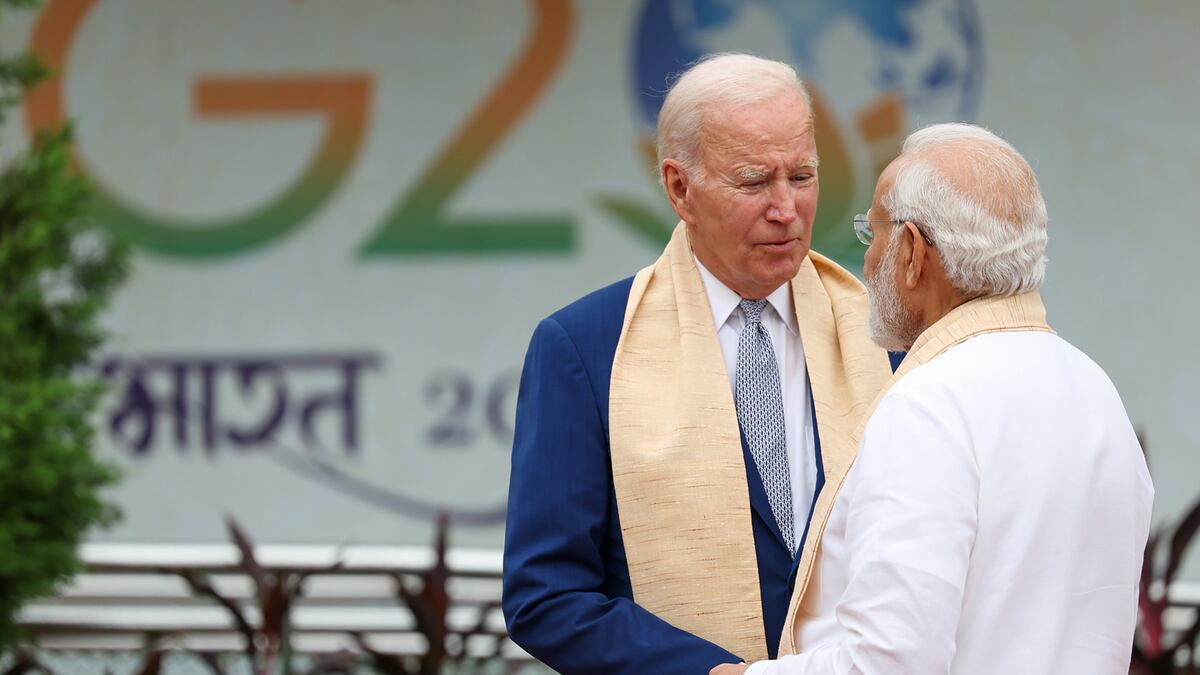- Leaders of the biggest economies want countries to be able to share information about crypto transactions across their borders.
- The G20 summit concluded in New Delhi this weekend.
- Global powers pushed for a regulatory framework for crypto.
Leaders of the world’s 20 largest economies at the G20 summit this weekend urged that crypto should be regulated globally and wanted to share information on crypto transactions across borders.
The annual gathering of world leaders concluded in New Delhi on Sunday — the G20 sets the agenda and shapes the economy for the countries that account for 85% of global GDP.
Crypto assets, which are growing on regulators’ radars, were not overlooked.
The G20 leaders echoed proposals that finance trendsetters published in July, adding urgency to the “effective and timely implementation of these recommendations in a consistent manner globally to avoid regulatory arbitrage,” according to the G20 declaration endorsed on Saturday.
The G20 backed a crypto tax reporting framework that calls to formalise the sharing of data related to tax information of crypto transactions.
Crypto service providers like wallets and exchanges would need to provide user information, a framework that would come in useful against tax evasion and help detect criminal funds in crypto crossing borders.
The leaders set the tax rule deadline for 2027.
As US regulators’ crackdown on crypto assets has sparked fears that American firms will opt for hubs overseas, some in the crypto industry welcomed the proposals.
For Richard Teng, head of regional markets at Binance, the crypto talks in international, standard-setting bodies show “a growing recognition” of the potential for blockchain technology and digital assets.
“This roadmap aims to ensure the successful adoption of crypto assets and the integration of blockchain technology into the wider financial system,” Teng told DL News.
The Financial Stability Board published its crypto regulatory recommendations in July. The financial systems trendsetters at the FSB also push for global cooperation on information sharing, along with setting minimum requirements for regulating crypto asset service providers and hedging risks for consumers.
These urges from the G20 and other policy trendsetters are not legally binding. But, they increase the pressure for countries to abide. The International Monetary Fund should also work out how central bank digital currencies would impact the wider economy, according to the G20 document.
Crypto tax reporting
Part of the global crypto regulatory guardrails that the G20 envisions includes a tax reporting framework that would allow countries to exchange data on crypto transactions across countries.
The framework was developed by the Organisation for Economic Co-operation and Development, which has policy rules and standards across its 38 member countries. The G20 had in fact prodded the OECD to develop a crypto asset reporting framework two years ago, and the final report was published in 2022.
The European Union is a step ahead, looking to bring the OECD’s crypto tax reporting framework into force by 2026.
NOW READ: EU muddies regulatory clarity on crypto with new tax reporting bill
This means that in the EU, service providers like exchanges would need to provide tax authorities with relevant information on their customers’ holdings and identification details. The European Council will need to finalise its adoption of the directive before the crypto rules can come into force.
Like the Common Reporting Standards regulations that apply to traditional finance, the widespread implementation of the crypto reporting framework would set up international cooperation surrounding the exchange of information on crypto transactions.
Aside from tax reporting, the G20′s declaration is also paving a way forward for a global implementation of crypto regulations. Finance ministers and central bank chiefs will continue discussing the roadmap proposed by intergovernmental finance heavy weights, the International Monetary Fund and the Financial Stability Board, in October.
